Imagine this: you’re the go-to person for project management. You have more than seven years of Excel experience. After answering all the same questions and doing the same one-off projects, you have an idea in your head—one that could get you paid. All your knowledge could make for a great e-book or online course. Whatever you’re dreaming up in your head, Teachable can make it a reality. We provide you with the tools to build your online course and productize your knowledge into a business. Whether it’s a pre-recorded curriculum or a combination of live and pre-recorded, you can build it on our platform.
Here’s a quick overview of the type of products you can build with the Teachable platform.
Types of products
Standard online courses—self-paced curriculum
Build your online course with a self-paced curriculum that offers students a meaningful transformation and a series of milestones they’ll hit to get there. A standard online course is digestible and robust. It also gives your students the flexibility to progress at their own pace and allows access to all of your content right after purchase.
For instance, this could look like building an online course about the basics of project management. This course promises to prepare students for an entry level project manager job.
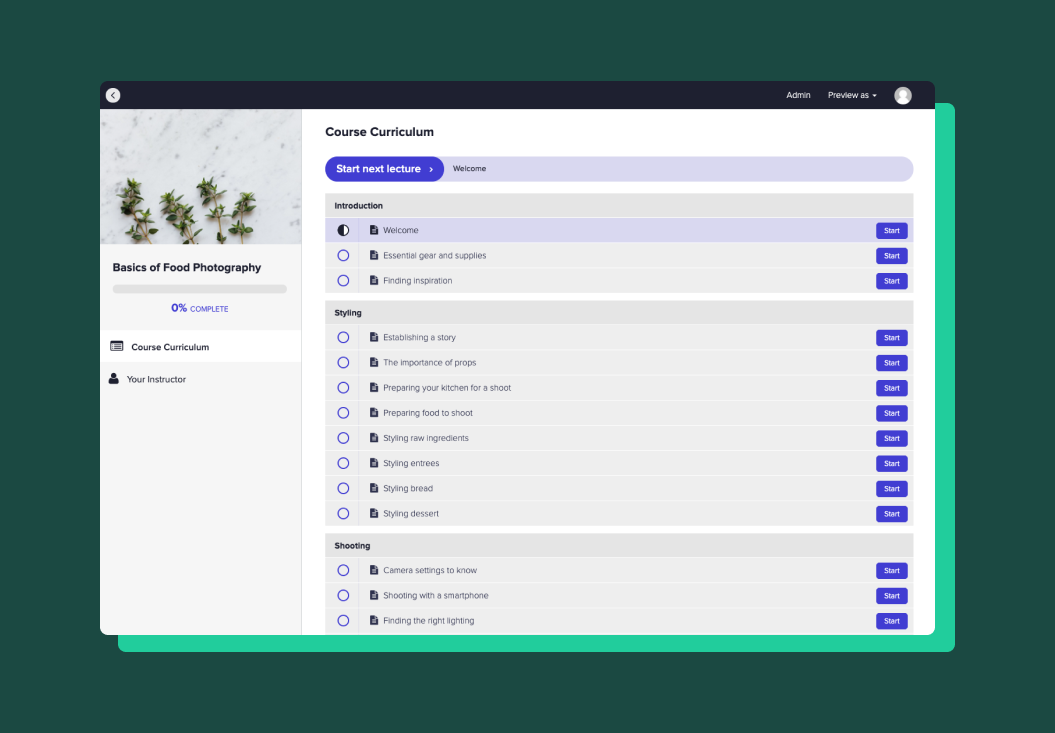
Mini-courses
If you wanted to test out an idea for a course first or wanted to get a smaller course out ASAP, you should start with a mini- course. A mini-course is a short, valuable version of a standard online course. You want to build this online course to focus on one very specific topic. This is where students can learn the content in just a handful of steps. It can be a sneak peek into what your standard online course offers. In fact, it’s a common strategy to take one of the sections out of their standard online course and offer it as a mini course.
Live courses
As the name suggests, this type of course is structured around scheduled live sessions that you’ve set up prior to student enrollment. Within the course, you can provide helpful resources that all your students will need to supplement your live course:
- Downloadable workbook
- Live sessions schedule and meeting URLs
- FAQs about the course
Plus, you can upload all replays from live sessions. Because of this, anyone who missed your event or wants to revisit the content is able to do so. For the creator with Excel expertise, this could be a series of live workshops on different Excel case studies.
Free tutorials
Think YouTube how-to tutorials—except instead of giving completely free access, you can capture students’ email addresses to follow up with additional content. If your standard course is on project management basics, then you can offer a free tutorial. This could be a chapter on accountability. Overall, this is a great way for you to build your online course audience and to gauge interest for your content.
Cohort-based courses
Cohort-based courses are courses with a more traditional academic structure you may have experienced in school. Build your online course that is designed for students to finish in three months (or whatever time frame you want). After the specified time, students will lose access to the course so they are incentivized to complete it. Or, they can repurchase at a discounted price for longer access.
This type of course allows you to re-launch it every three or six months. You can have a smaller group of students, which allows students to have a community experience and more access to you as a teacher.
Drip courses
Drip courses are courses where you release content one module or section at a time. This type of course is best used if you are pre-selling your course or you want to keep students engaged. Because you’re limiting the content they get access to, students aren’t immediately overwhelmed and cannot jump ahead. Plus, drip courses allow you to create, prepare, and update course content right before you roll it out to your students. With drip, you can release each section after a specified period of time or on a specific date.
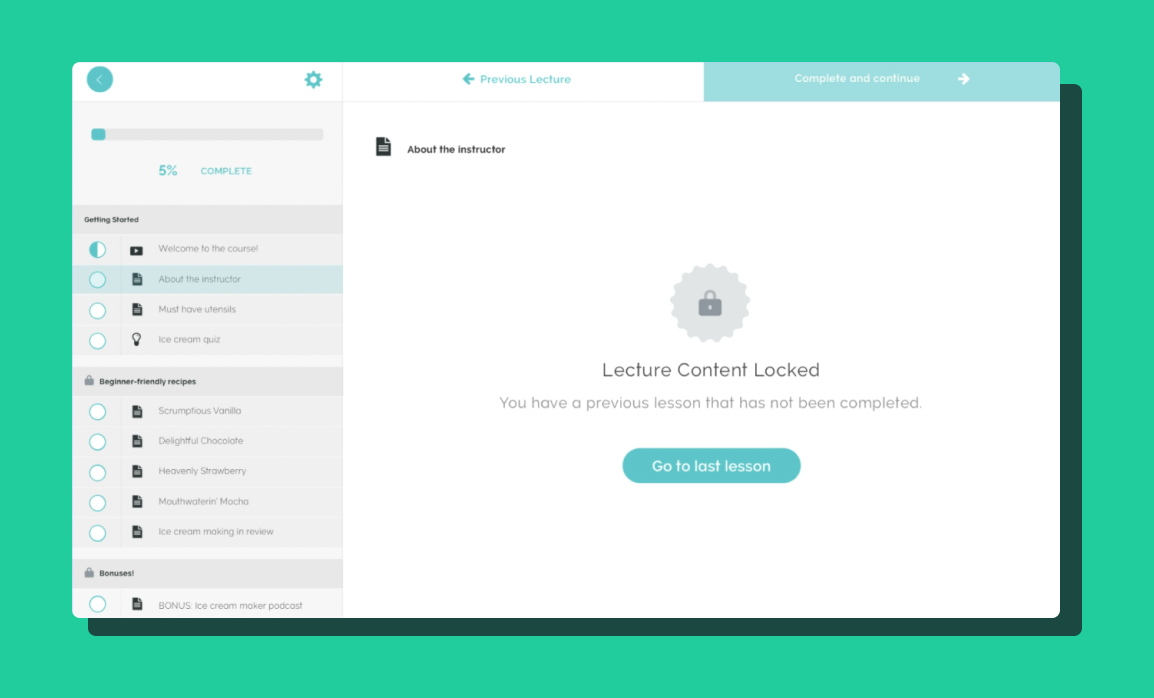
{{minicourse-component="/blog-shortcodes/blog-popup"}}
Software/skills training
Companies want to provide their employees with software and skills training. Professionals want to find ways to level up on the skills they have to put on their resume. You can create software/skills training on Teachable that you can sell in bulk to businesses and à la carte to individuals who are interested. With our easy-to-use platform, you can build an online course that suits any type of skill training.
Certification training
Certification training offers a certificate that guarantees all students have completed and obtained the skills taught in the training. Certificates serve as motivation for students to pass all quizzes in order to receive them. They also serve as external validation of knowledge. As such, certification courses have enforced lesson completion, enabled video compliance, and minimum passing quiz scores. Once your student completes the course, they’ll automatically be awarded with a certificate of completion that you can design and keep branded.
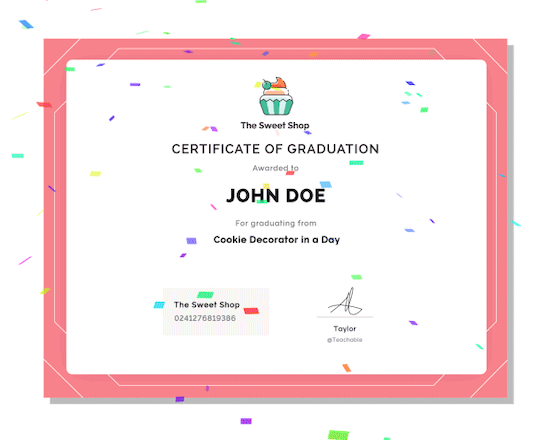
One-on-one coaching or consultations
One-on-one coaching or consultations are usually short, one-time bookings where you are able to offer your expertise. If you are a blogger, you can offer a keyword or editorial calendar consult. If you are a vocal coach, you can offer a one-hour vocal coaching session. These are simple and fast options you can offer to your audience.
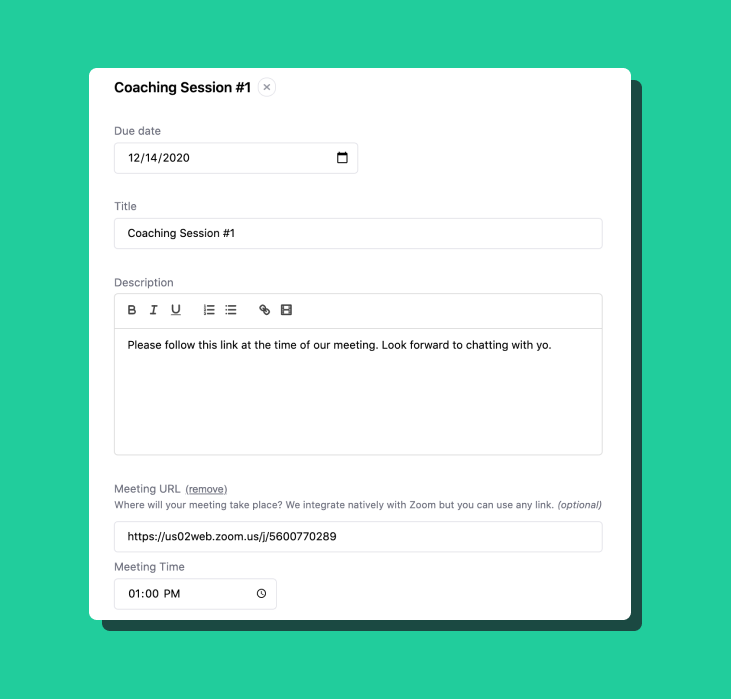
Coaching packages
Coaching packages are for coaching topics that require more than just one session. For topics that require weekly coaching sessions and a longer time with your students, you can create coaching packages for eight weeks or six months. You can schedule, meet, and document all progress notes all in one place on Teachable.
Course marketplace
A course marketplace is where you have a variety of courses on different topics, created by different people. Bring in your network of course creators and do all the backend work to get their courses set up. All courses will be hosted in one place where students can filter by categories and authors and find the course that’s the best fit for them. Plus, you can set the author commission for courses. Don’t worry, we handle the payouts to your authors, as well.
Course bundles
Course bundles are a bundle of courses you’ve created. If you’ve created multiple courses on similar topics, you can sell these courses together at a discounted price. Take for example, you’ve created a Foundations of Project Management course, Project Management Templates course, and an Advanced Project Management Certification course, you can sell them together as a bundle to help your audience progress through all the material. This is a great way to upsell your audience.
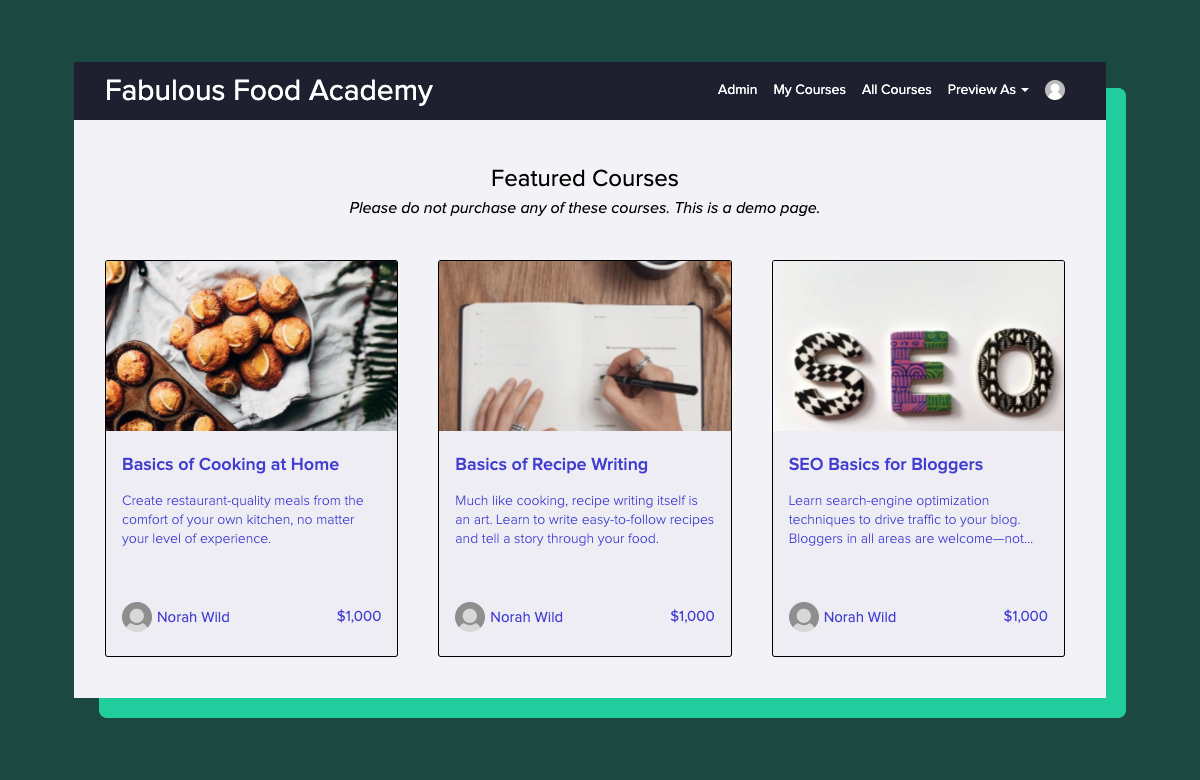
Subscription courses
Some course topics are better suited to a subscription model because of the learning behavior related to the subject—take coding or watercoloring, for example. Allow your students to keep subscribing to the course content until they are proficient in the skill before they cancel.
Digital goods (downloadables)
Although Teachable is best known for building online courses, you can also use our platform to offer digital goods. Teachable is a great way to sell and give students access to any e-books, workbooks, PDFs, templates, etc. that you’ve built and curated.
Membership
A membership is a hybrid course—one that consists of many of the options listed above together. Memberships are typically subscription-based and consist of pre-recorded course elements, live sessions, and one-on-one coaching and engagement with (and between) students.
Your course journey starts here
Beginning to see how the course you are dreaming up in your head can be a reality on Teachable? We can, too. If you are still unsure how this might look, register for our on-demand QuickStart Webinar and get a in-depth look at what our platform can do for you.
Join more than 150,000 creators who use Teachable to make a real impact and earn a real income.



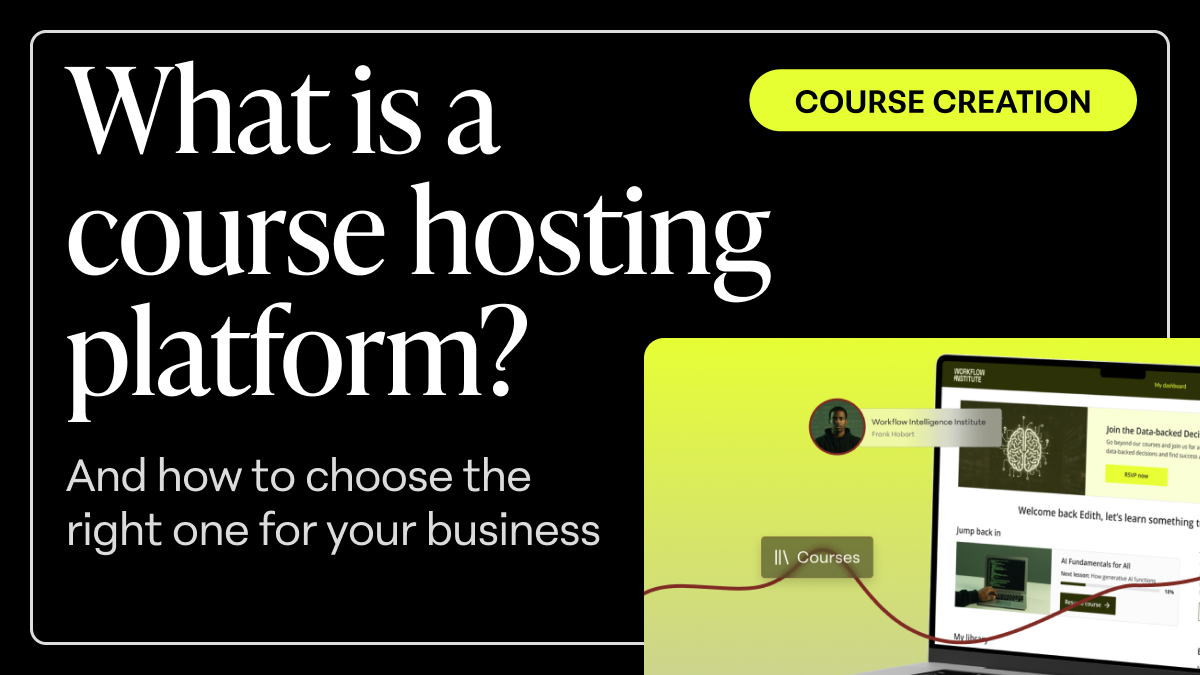

%201%20(1)%20(1).png)
.png)
